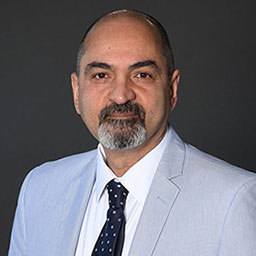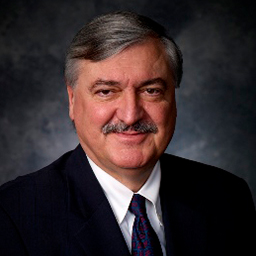Jindal School Inaugurates Undergraduate Deans Conference
Jindal School Inaugurates Undergraduate Deans Conference
Colloquium Helps Equip Business School Administrators to Change Student Lives

More than 100 associate and assistant business school deans attended the inaugural Undergraduate Deans Conference the Jindal School presented March 1 and 2 to learn from one another ways to better develop and manage undergraduate business-school programs to benefit students.
Presented virtually, the colloquium — which is slated to become an annual event — drew participants from 84 universities.

“Undergraduate programs are, in many ways, the most important programs that business schools do,” Dr. Hasan Pirkul, Caruth Chair and Jindal School dean, said in a welcome message, “Why? This is the program where we have the most responsibility. … [In] the undergraduate program, we take very young students that are still in the formative years of their lives, and we literally shape their lives.”

Two Jindal School faculty members — Dr. Shawn Alborz, conference chair and the Jindal School’s associate dean for undergraduate programs; and co-chair Victoria McCrady, an assistant professor of instruction — headed the conference organizing committee.
“Dean Pirkul and I recognized the need for a forum such as this,” Alborz said, “one that brings together thought leaders who are succeeding in providing outstanding undergraduate business education in a competitive environment.”
A Keynote on Competitive Differentiation

Klaus Dohrmann, an executive from DHL, the international delivery and mail service company, was the keynote speaker. His presentation, “Differentiation Matters in a Hyper Competitive World,” centered on business innovation as it relates to the competitive environment in which his supply chain logistics services company finds itself. But the ideas he outlined set the stage for subsequent discussions related to business education programs.
Alborz had asked him “to provide our views on how to differentiate in our competitive environment,” said Dohrmann, vice president of sector development engineering, manufacturing and energy for DHL’s customer solutions and innovation. “I cannot help you so much with this environment at universities. But of course, you know I’d love to share how we in DHL look at this competitive environment and what we do to differentiate.”
Guidance for Going Forward
Other discussion topics included growing enrollment, mentoring programs, study- abroad programs, virtual learning, honors programs, undergraduate research programs and capstone senior projects such as those implemented recently by the Jindal School.
Alborz participated as a panelist in a session titled “Programs That Differentiate Your School: Honors, Undergraduate Research Programs and Capstone Senior Projects” and was an active discussant in all sessions.
McCrady, also an active participant in discussions, said the conference was “a true triumph.”
The conference fulfilled a critical need, she said, to address problem-solving. It “focused on ways — one after another — that business school leaders can build programs to better support, engage and develop students so that they have great educational experiences.”
Impacting the Undergraduate Experience

Dr. Robert F. Whitelaw, vice dean of the Undergraduate College at New York University’s Stern School of Business, wrote in a post-conference email that the conference was an invaluable opportunity to connect with and learn from educators and leaders across the country.
“Coming together is more important now than ever, as we all strive to anticipate and navigate a constantly changing environment, innovate to optimize the student experience and educate and inspire tomorrow’s business leaders,” he wrote. “Even though our programs differ in many ways, we also face common challenges, and carving out time to share ideas and best practices benefits us as educators and, above all, our undergraduate business students.”

Dr. Charles Allen, assistant dean for undergraduate programs at Temple University’s Fox School of Business, appreciated the JSOM team’s efforts. “There was great conversation and lots of great idea sharing,” he wrote post-conference. “I was able to do some great networking as well.”

Dr. Jennifer Percival, associate dean in the Manning School of Business at the University of Massachusetts at Lowell, was a panelist at a session titled “Lessons Learned from Engaging Undergraduate Students Virtually and What Can We Expect Post-COVID?”
“[This] conference provided a wonderful opportunity for networking, sharing innovative solutions and [discussing] future trends in undergraduate education,” she wrote in an email. “It was an honor to present alongside colleagues from other top business schools to explore how we can positively impact the undergraduate experience.”
Alborz said that planning for the conference next year is already underway.